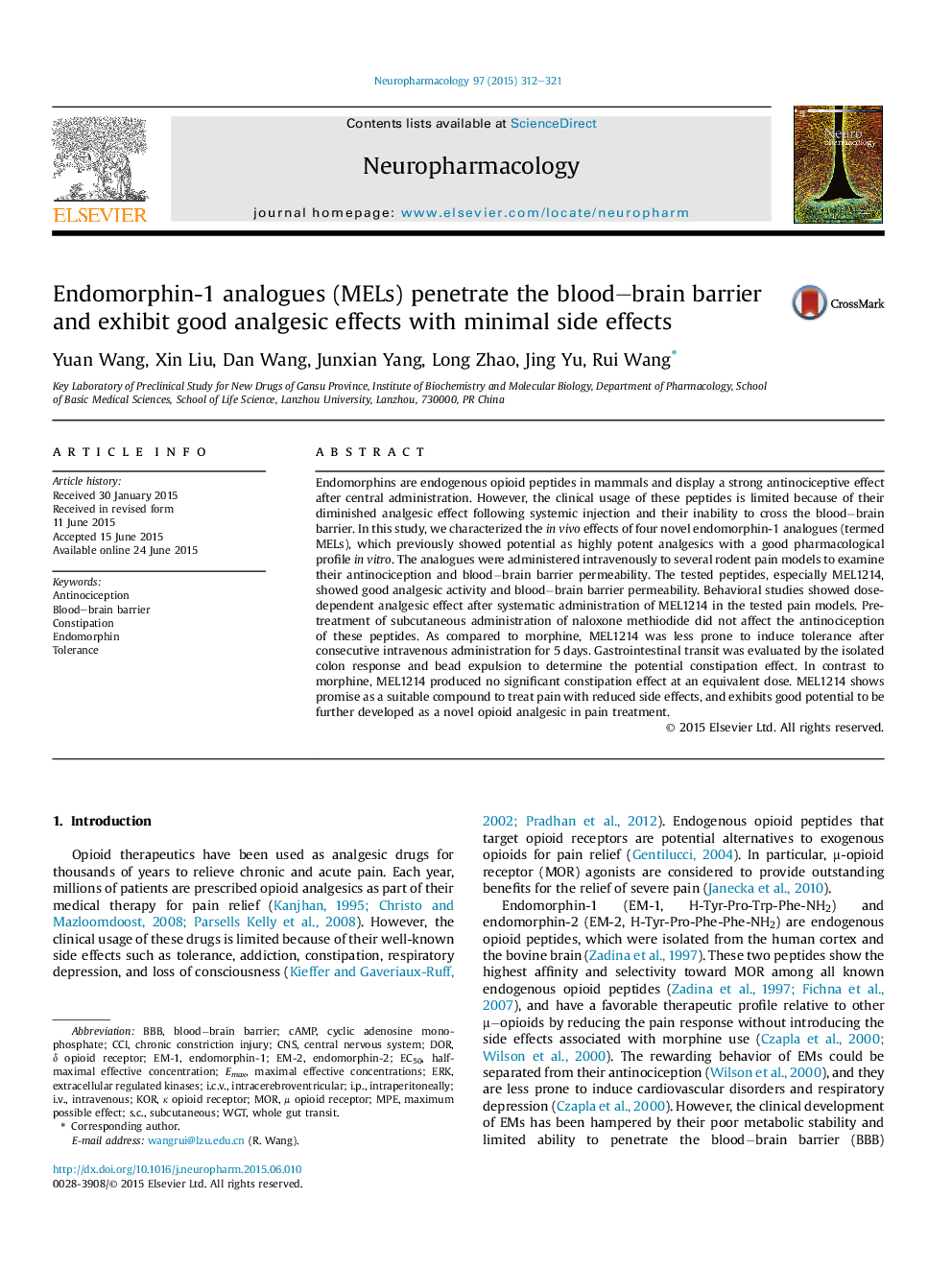| Article ID | Journal | Published Year | Pages | File Type |
|---|---|---|---|---|
| 5813980 | Neuropharmacology | 2015 | 10 Pages |
Abstract
Endomorphins are endogenous opioid peptides in mammals and display a strong antinociceptive effect after central administration. However, the clinical usage of these peptides is limited because of their diminished analgesic effect following systemic injection and their inability to cross the bloodâbrain barrier. In this study, we characterized the in vivo effects of four novel endomorphin-1 analogues (termed MELs), which previously showed potential as highly potent analgesics with a good pharmacological profile in vitro. The analogues were administered intravenously to several rodent pain models to examine their antinociception and bloodâbrain barrier permeability. The tested peptides, especially MEL1214, showed good analgesic activity and bloodâbrain barrier permeability. Behavioral studies showed dose-dependent analgesic effect after systematic administration of MEL1214 in the tested pain models. Pre-treatment of subcutaneous administration of naloxone methiodide did not affect the antinociception of these peptides. As compared to morphine, MEL1214 was less prone to induce tolerance after consecutive intravenous administration for 5 days. Gastrointestinal transit was evaluated by the isolated colon response and bead expulsion to determine the potential constipation effect. In contrast to morphine, MEL1214 produced no significant constipation effect at an equivalent dose. MEL1214 shows promise as a suitable compound to treat pain with reduced side effects, and exhibits good potential to be further developed as a novel opioid analgesic in pain treatment.
Keywords
EM-2s.c.MPEMORi.v.EM-1EmaxERKEC50CCIi.p.i.c.v.WGTintracerebroventricularcAMPδ opioid receptorμ Opioid receptorCyclic adenosine monophosphatechronic constriction injuryendomorphin-2Endomorphinendomorphin-1ToleranceMaximum possible effectIntraperitoneallyIntravenousDORCNSsubcutaneousBBBBlood–brain barriercentral nervous systemAntinociceptionhalf-maximal effective concentrationKORExtracellular regulated kinasesκ opioid receptorConstipation
Related Topics
Life Sciences
Neuroscience
Behavioral Neuroscience
Authors
Yuan Wang, Xin Liu, Dan Wang, Junxian Yang, Long Zhao, Jing Yu, Rui Wang,
